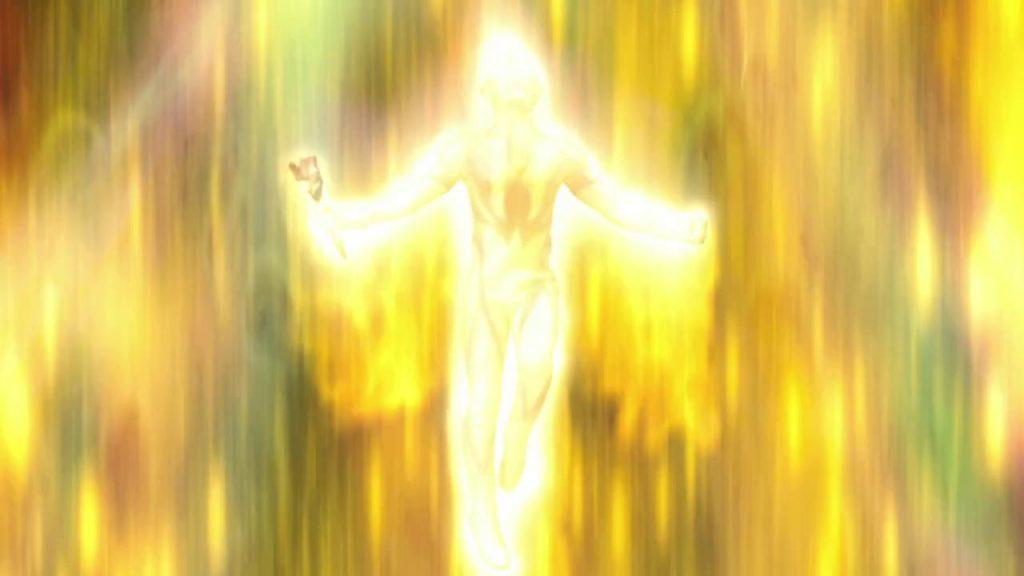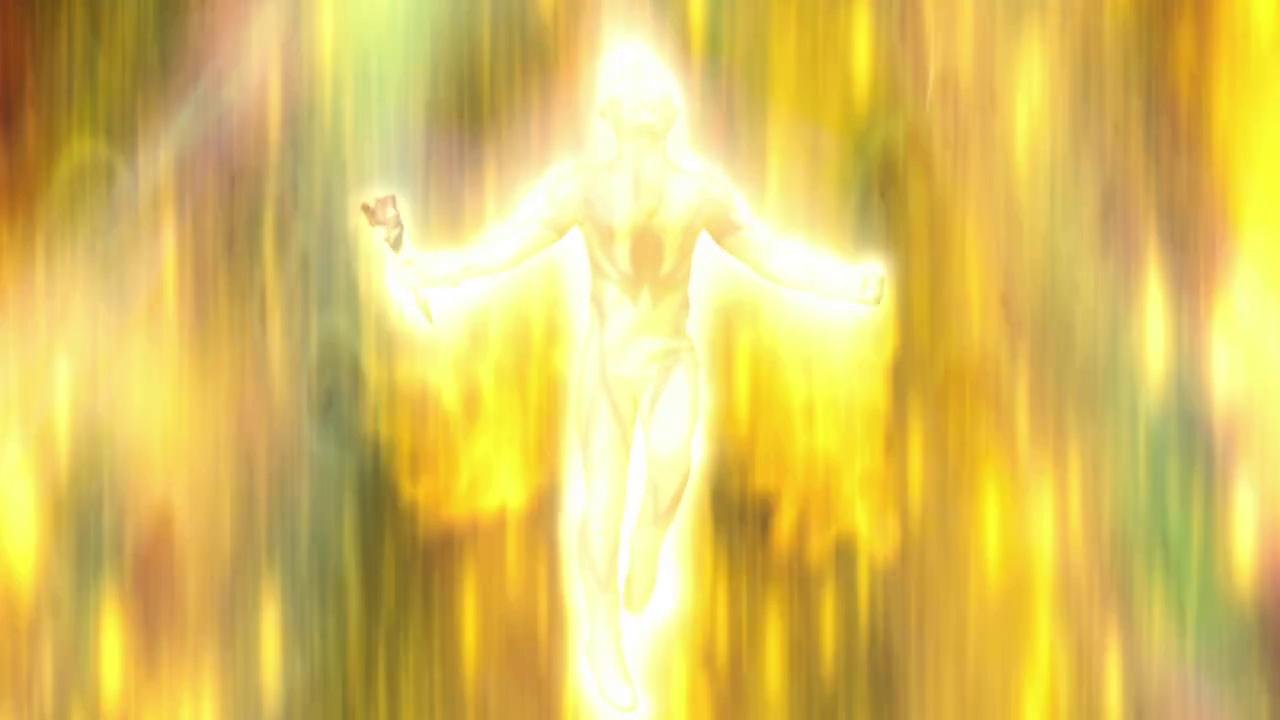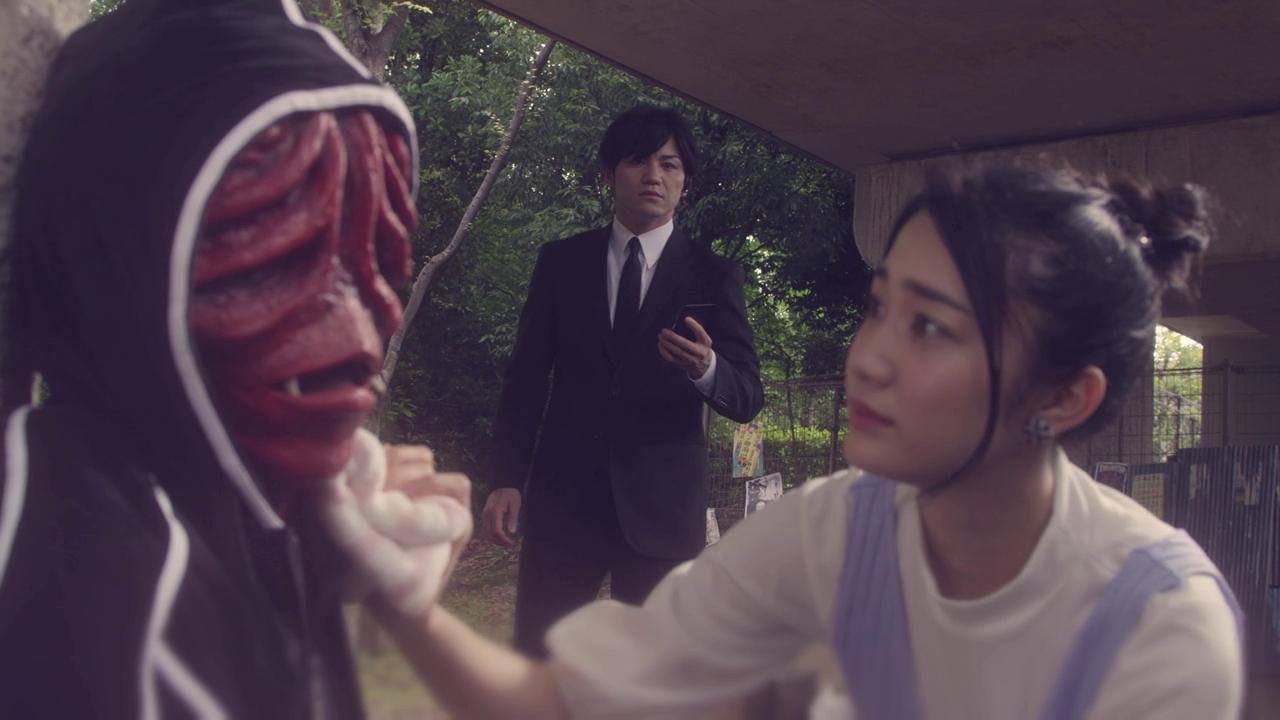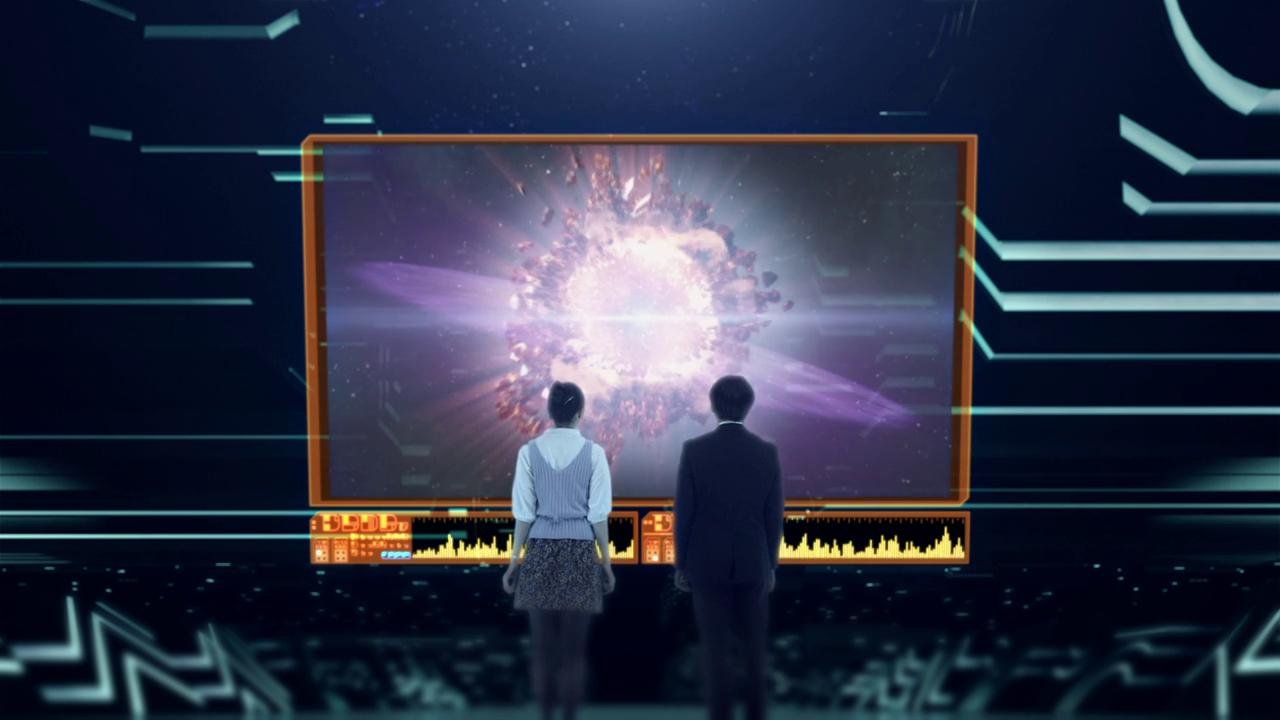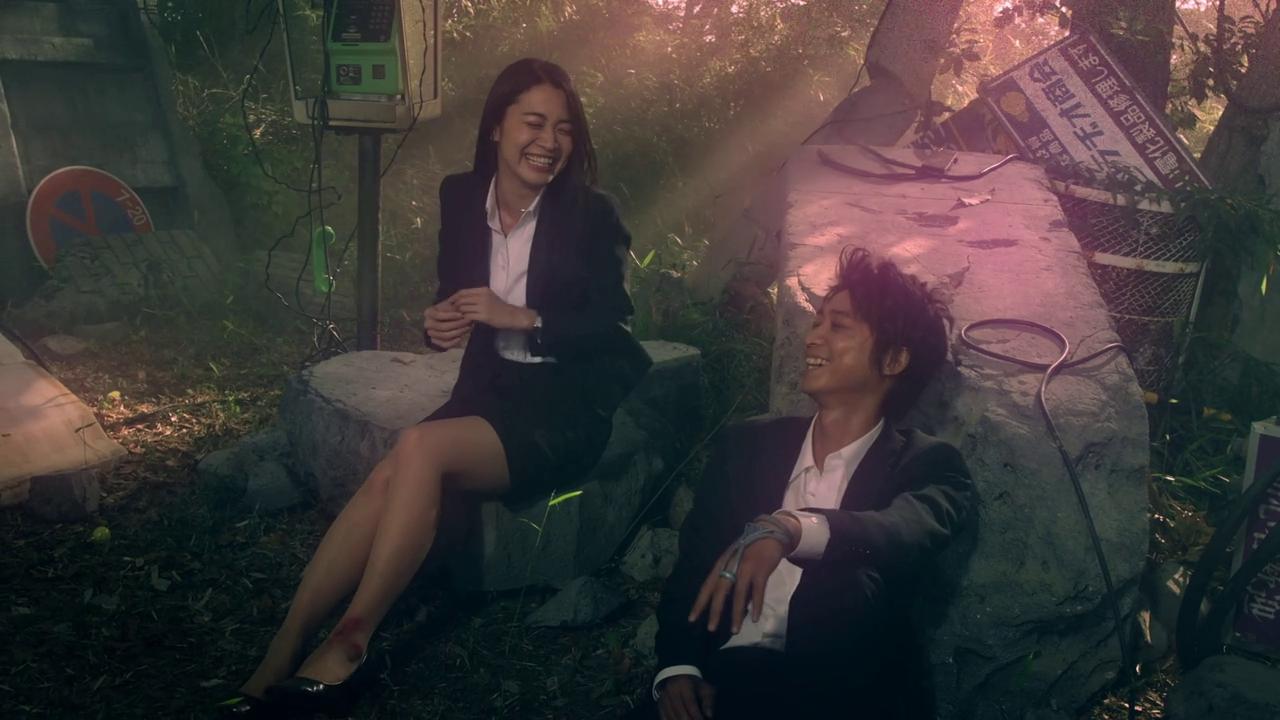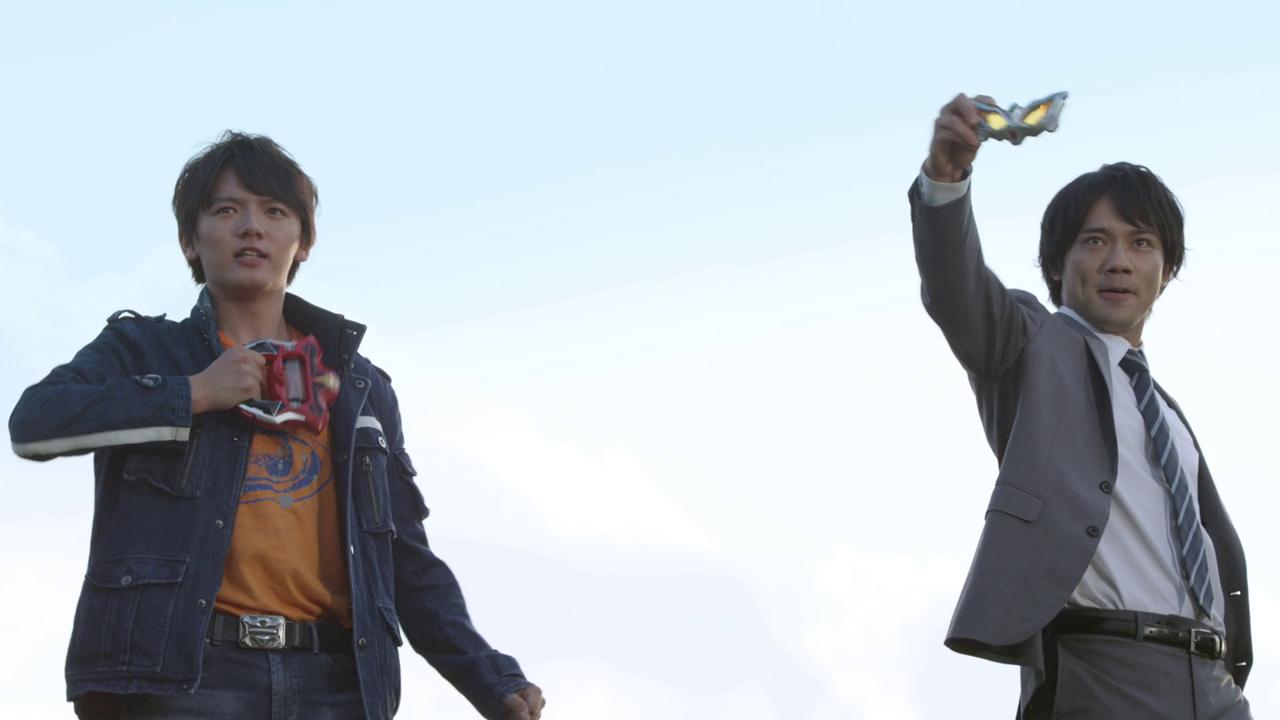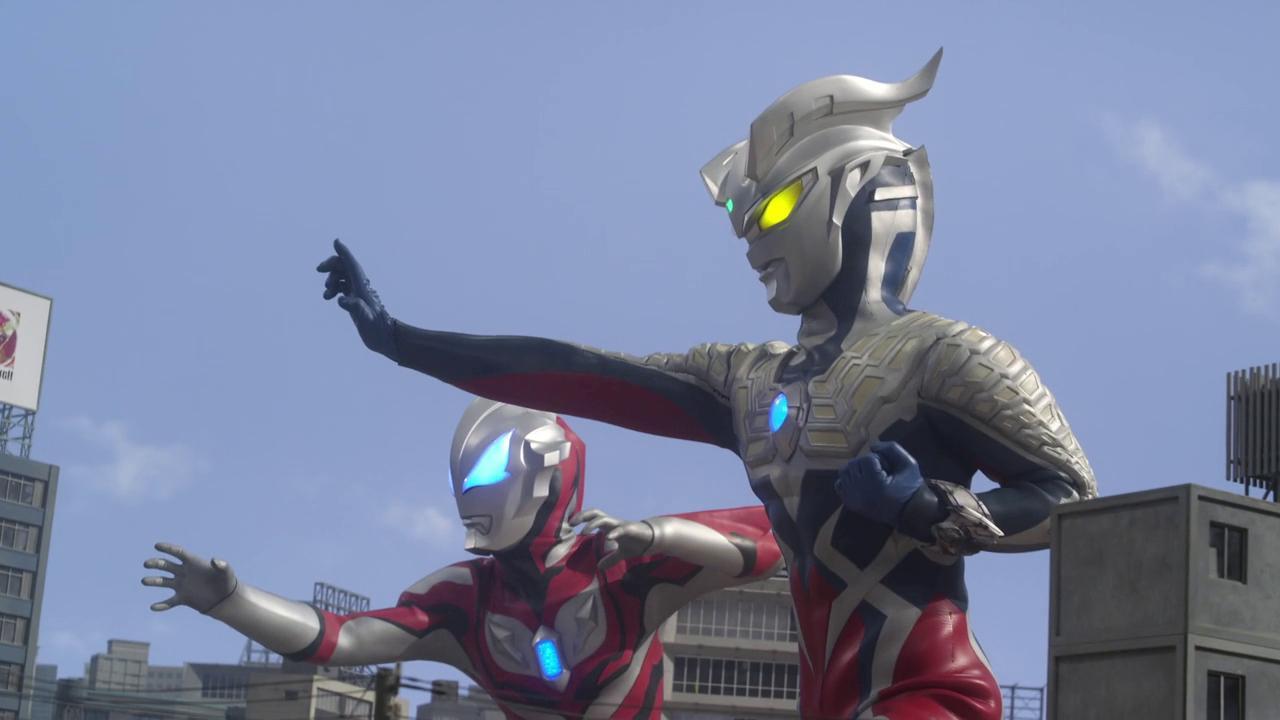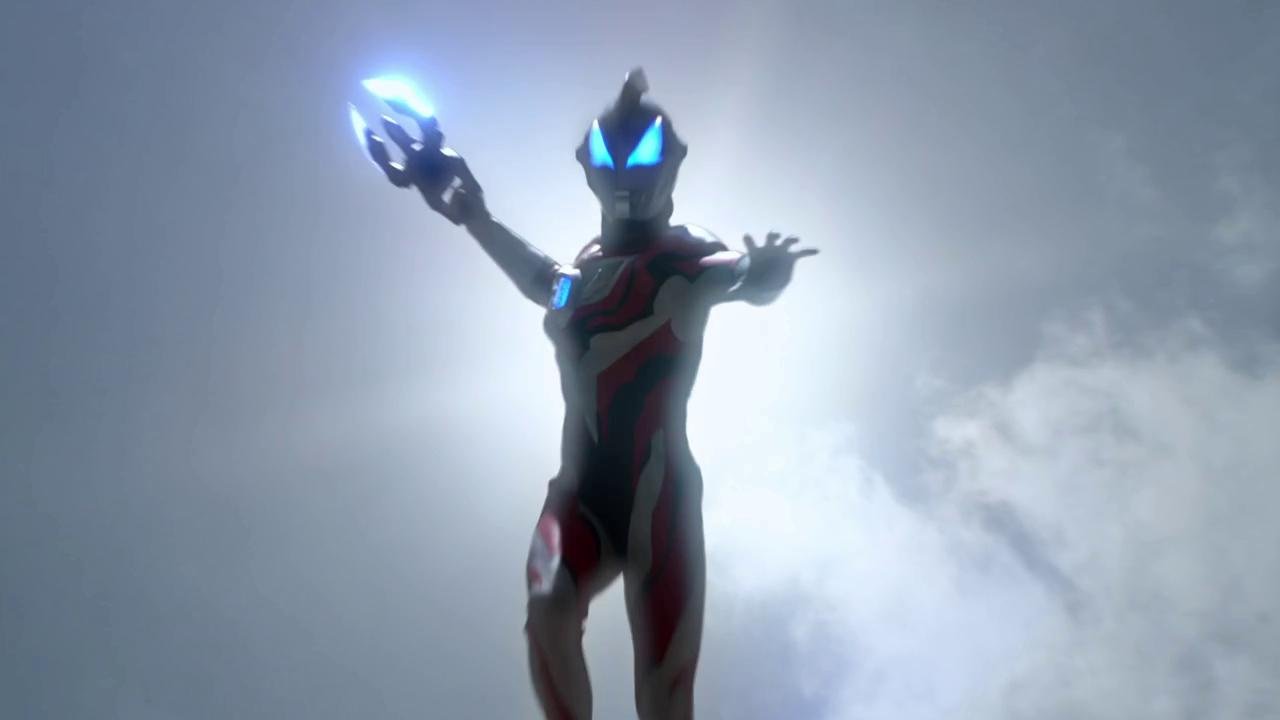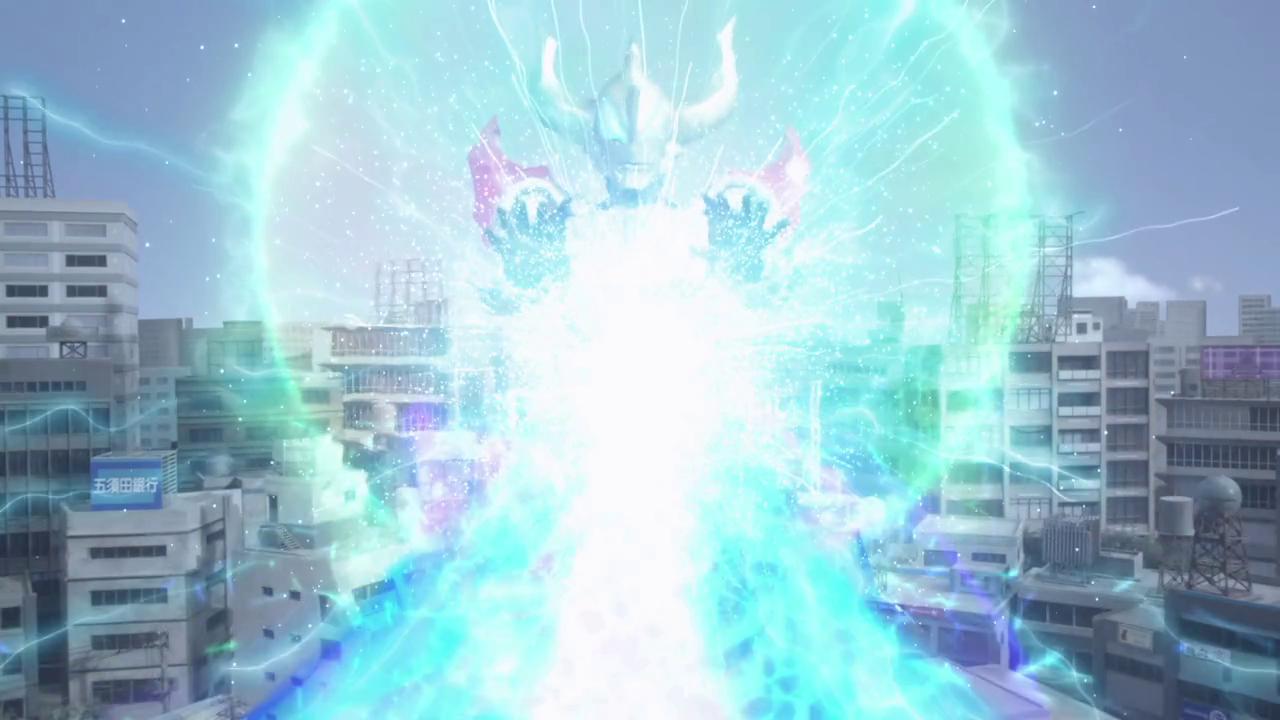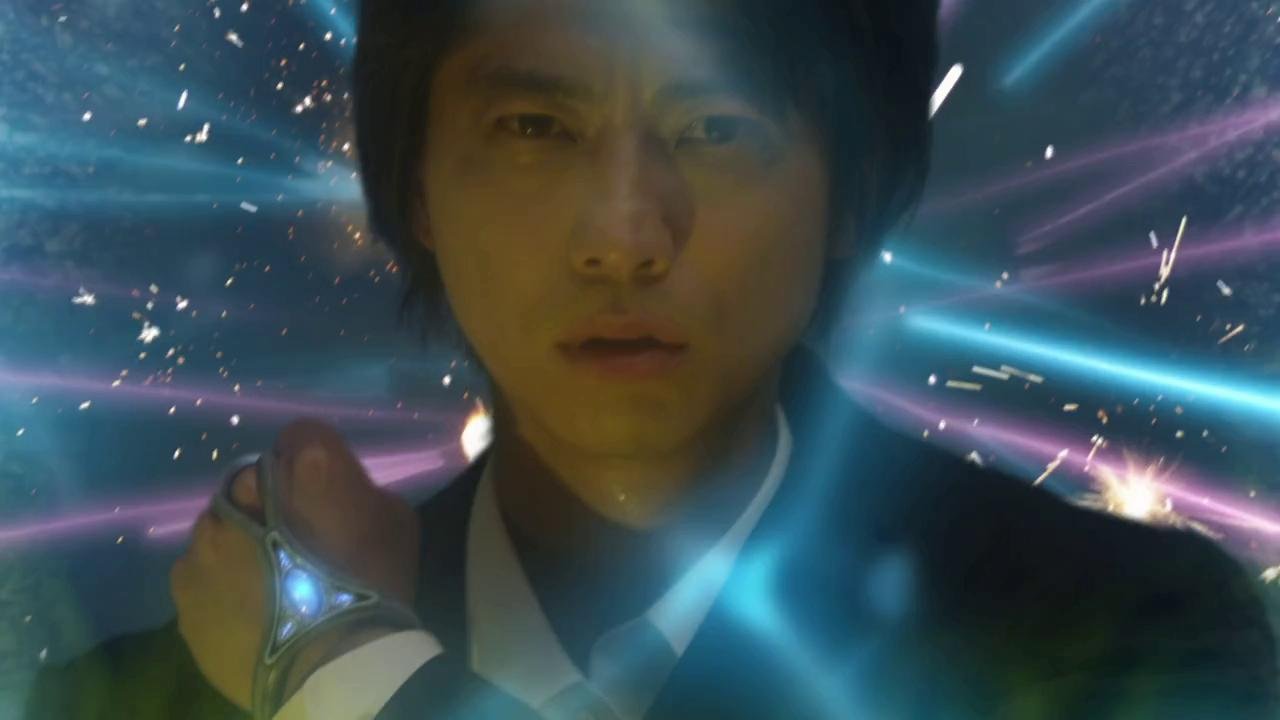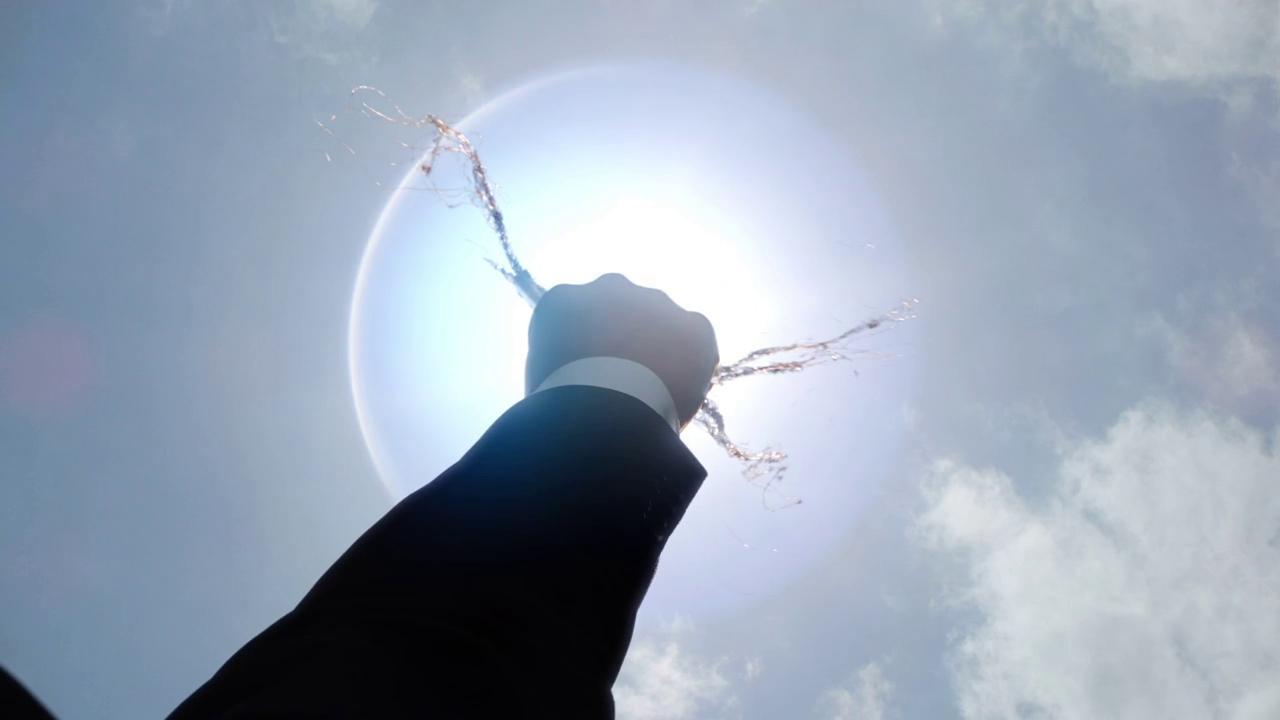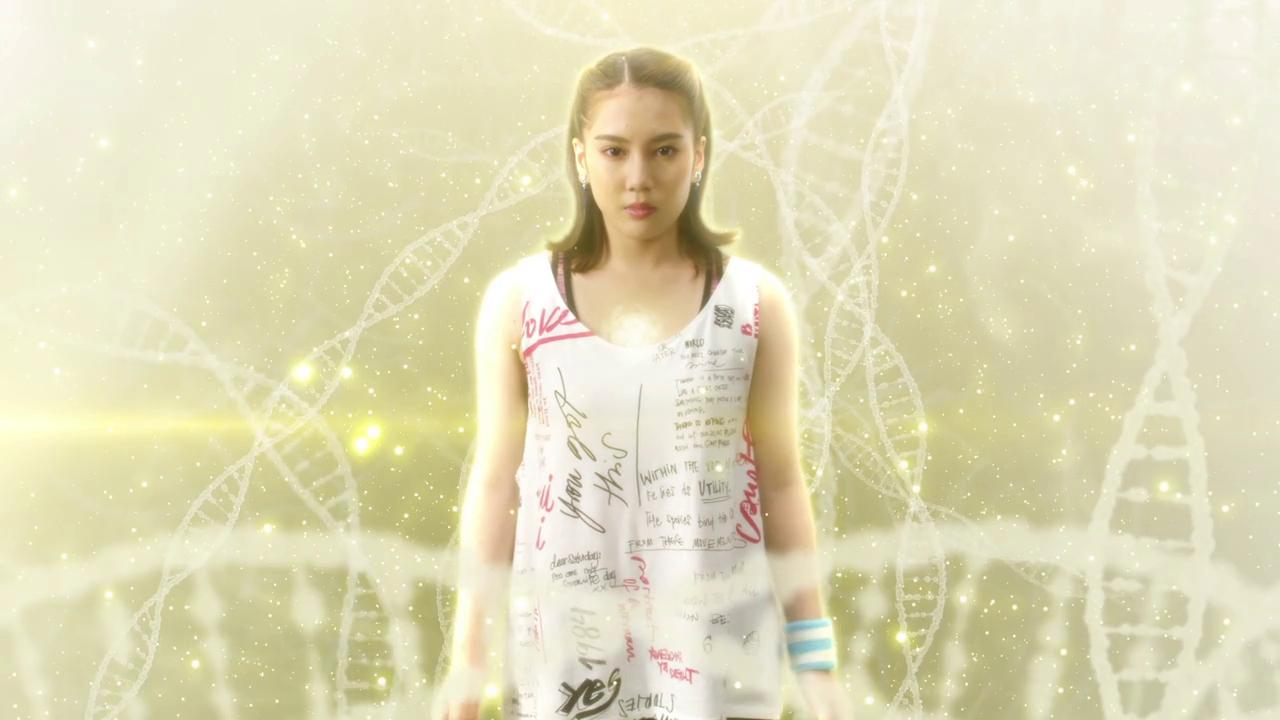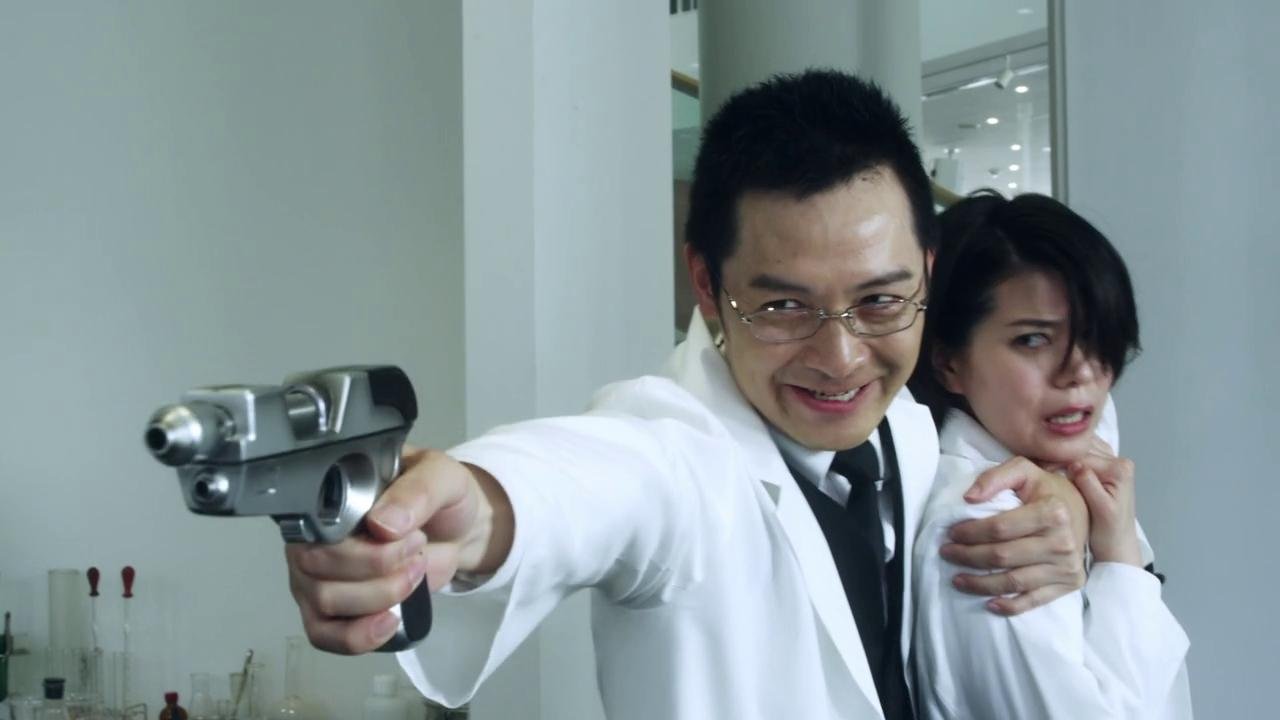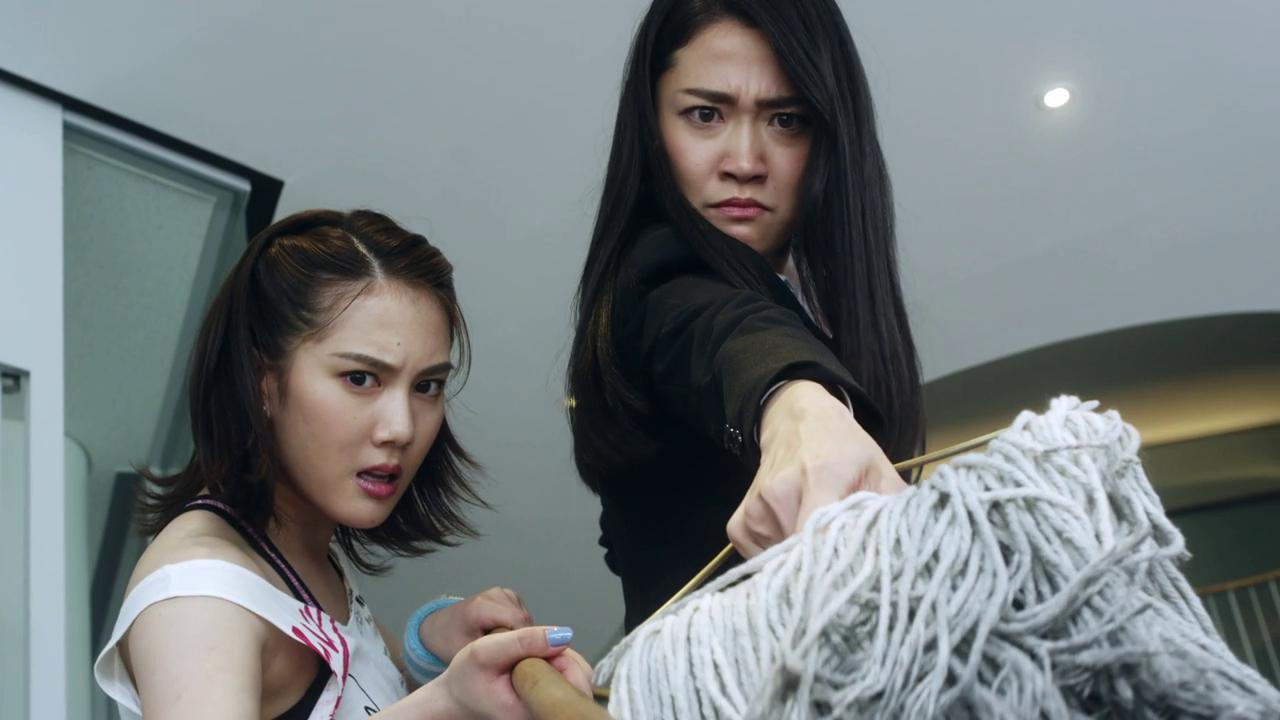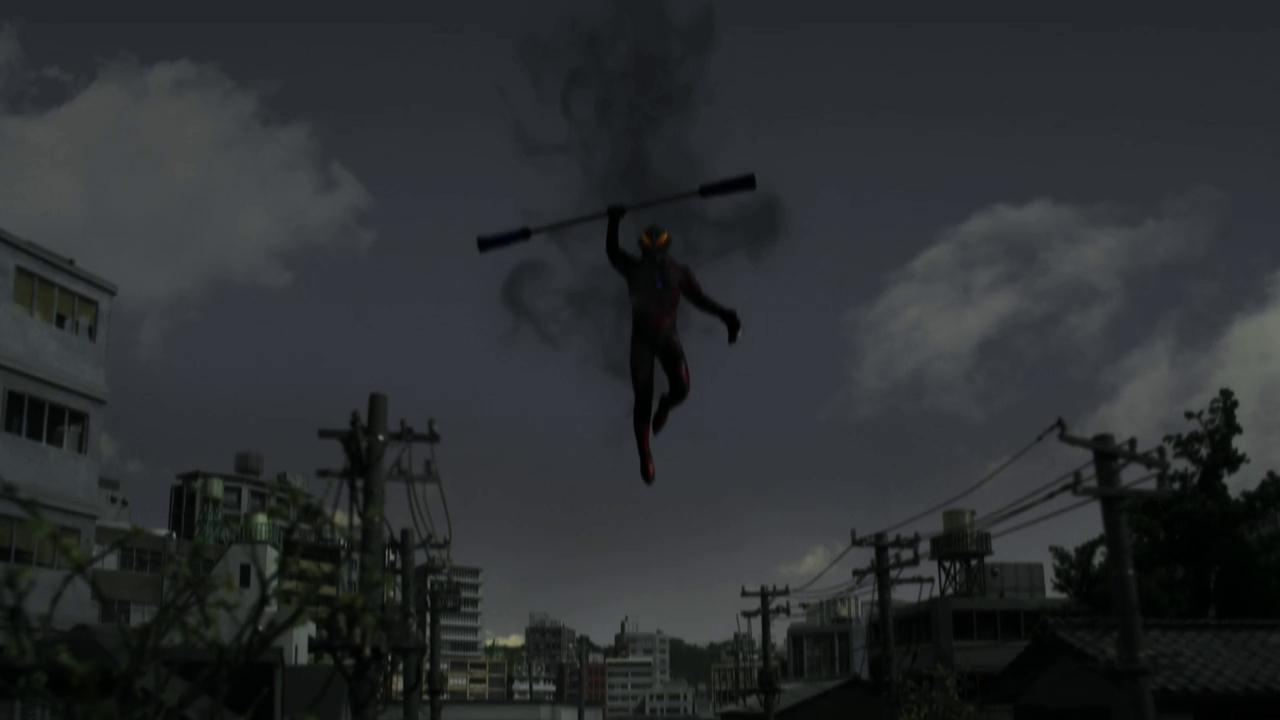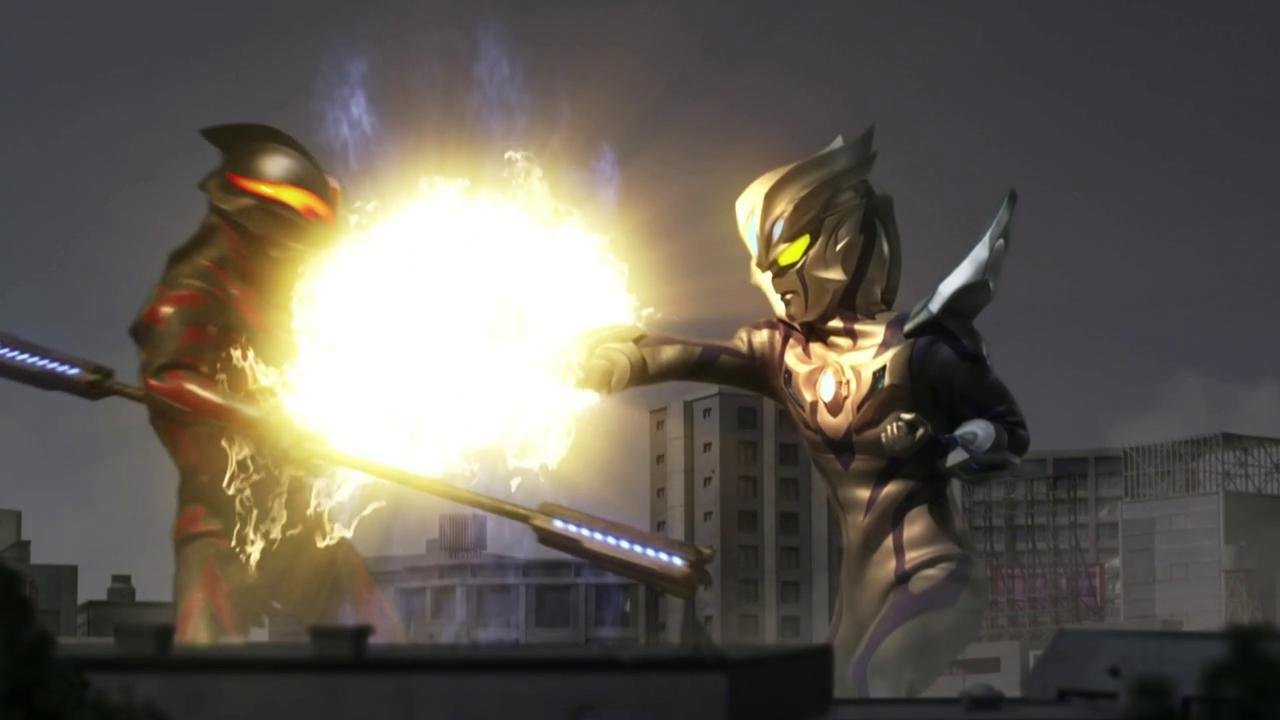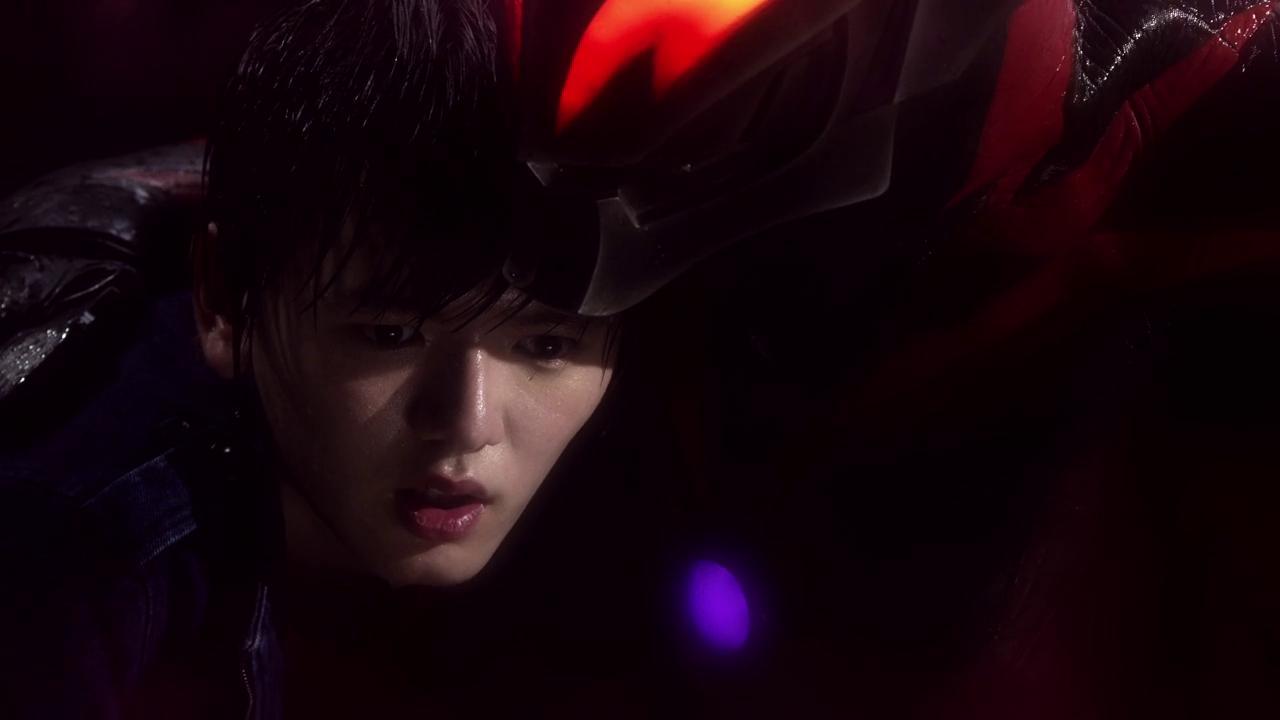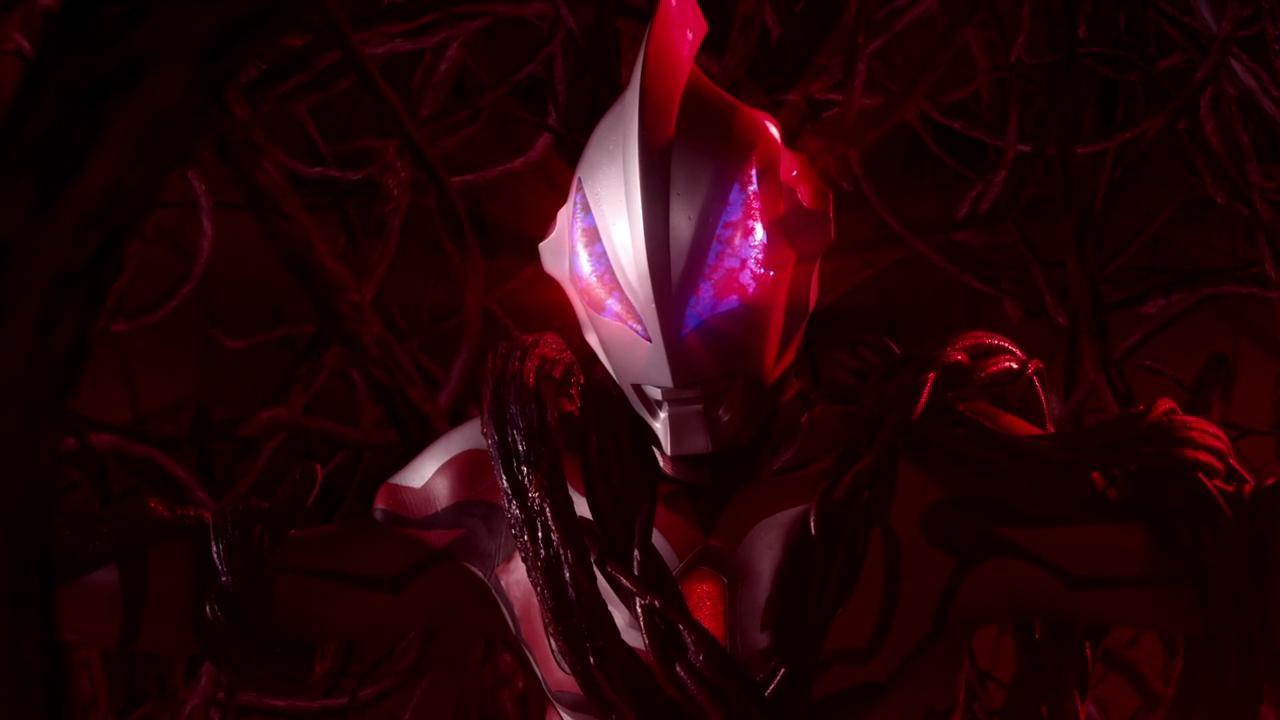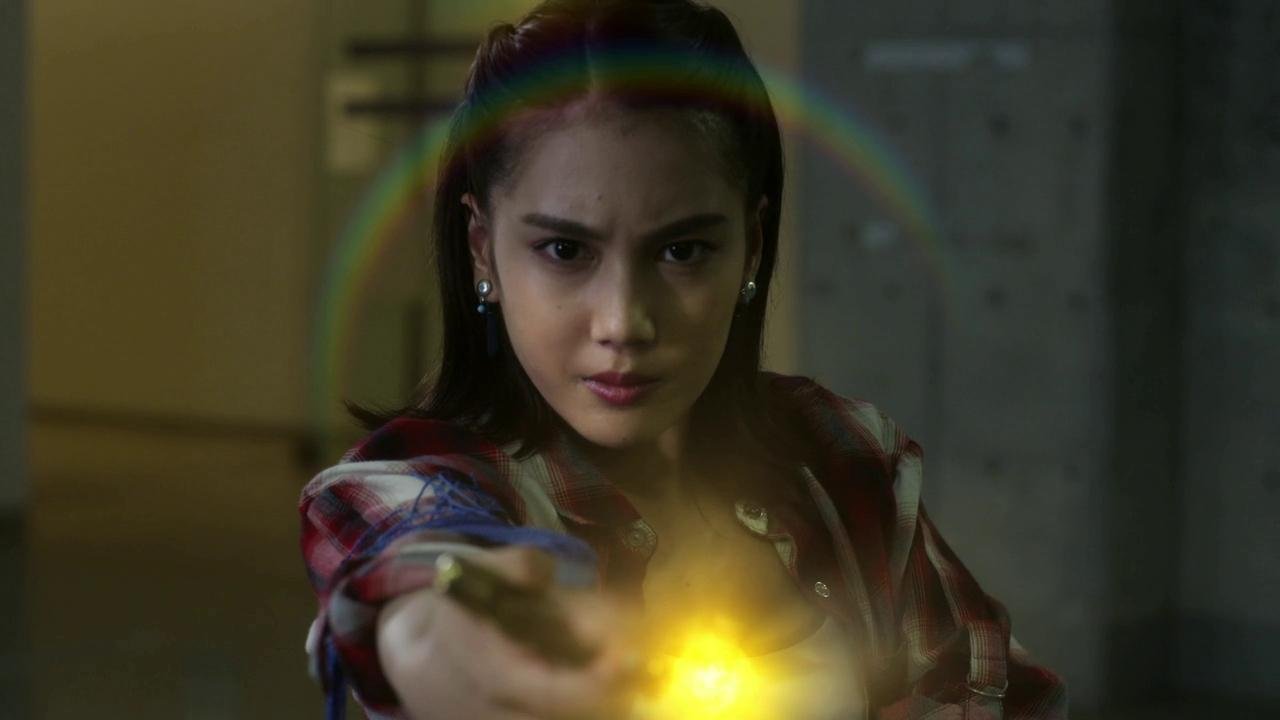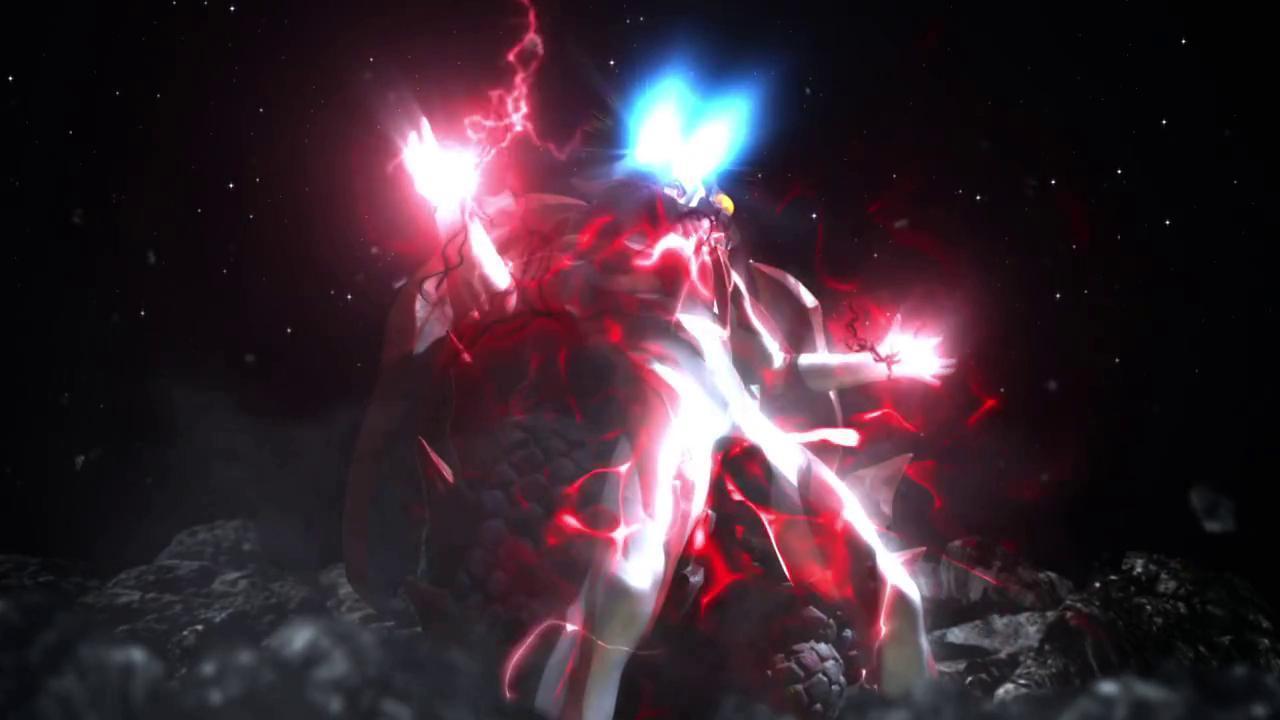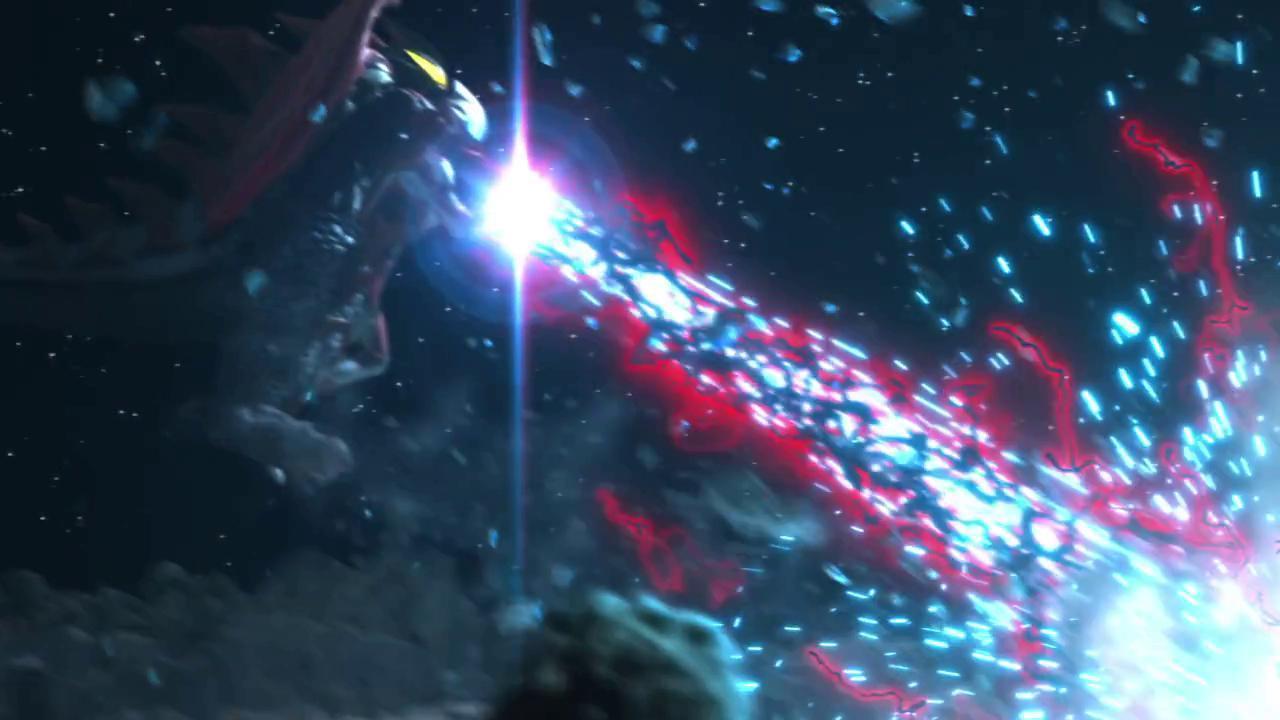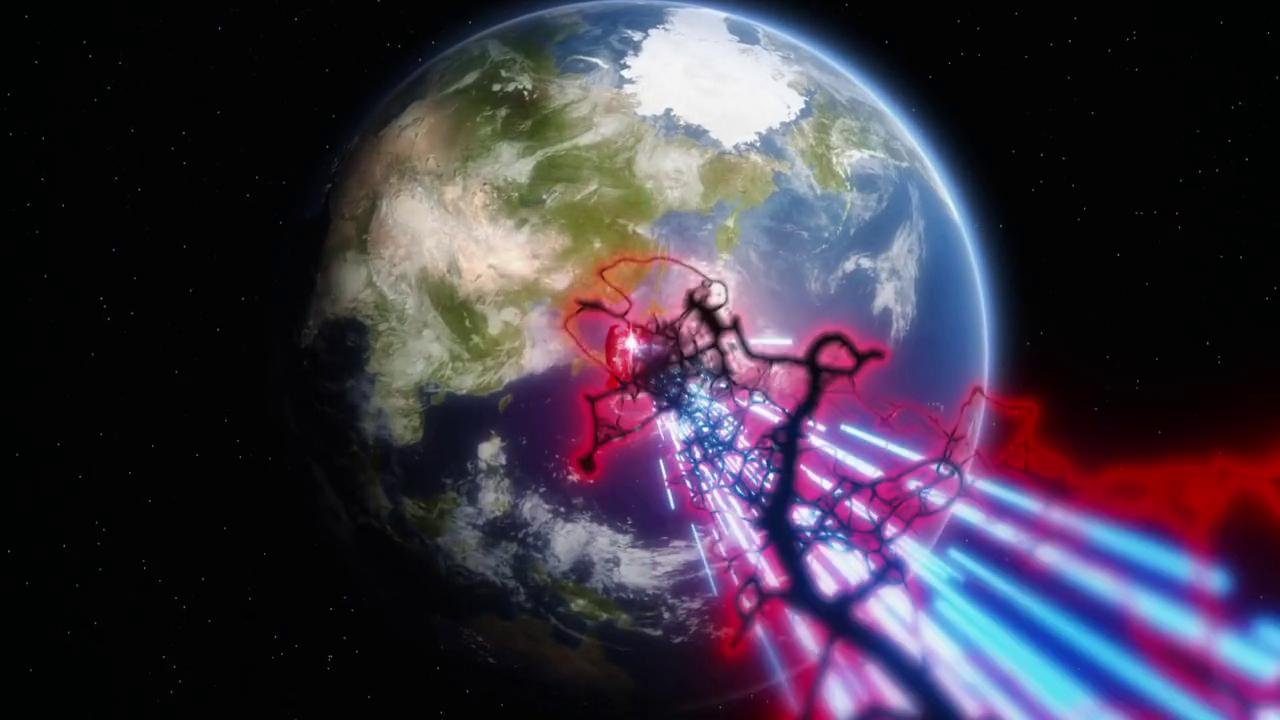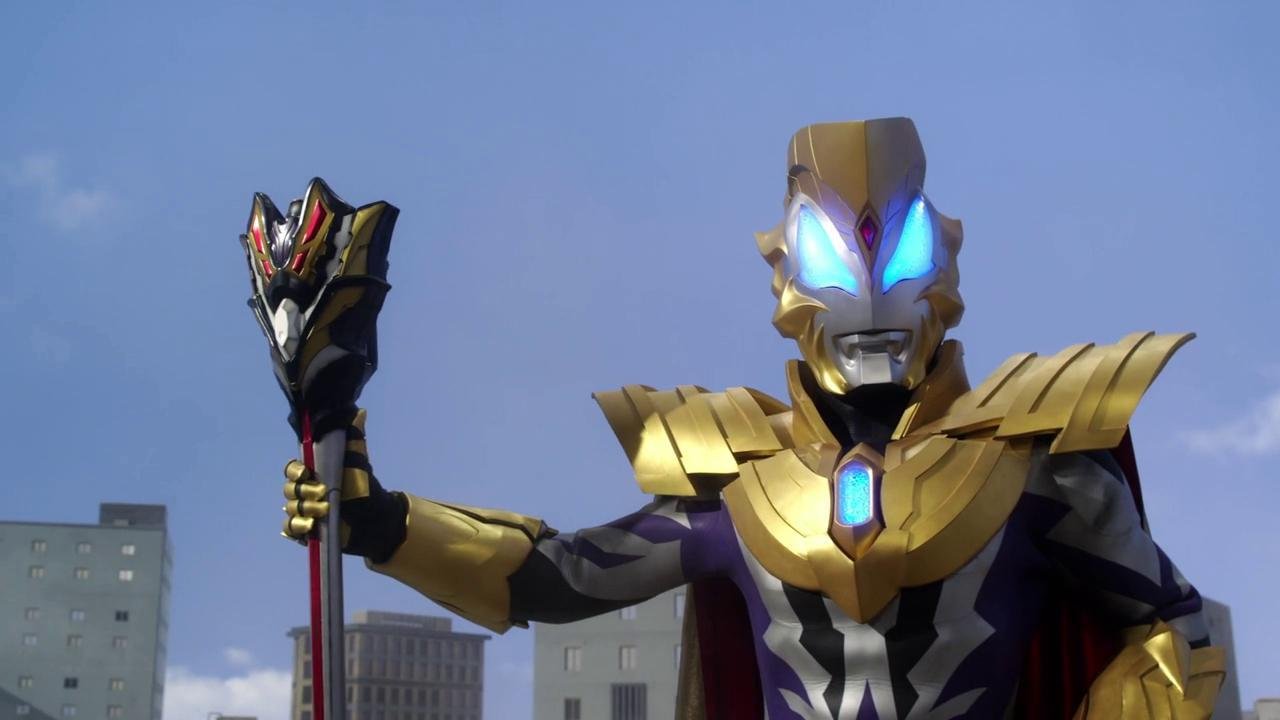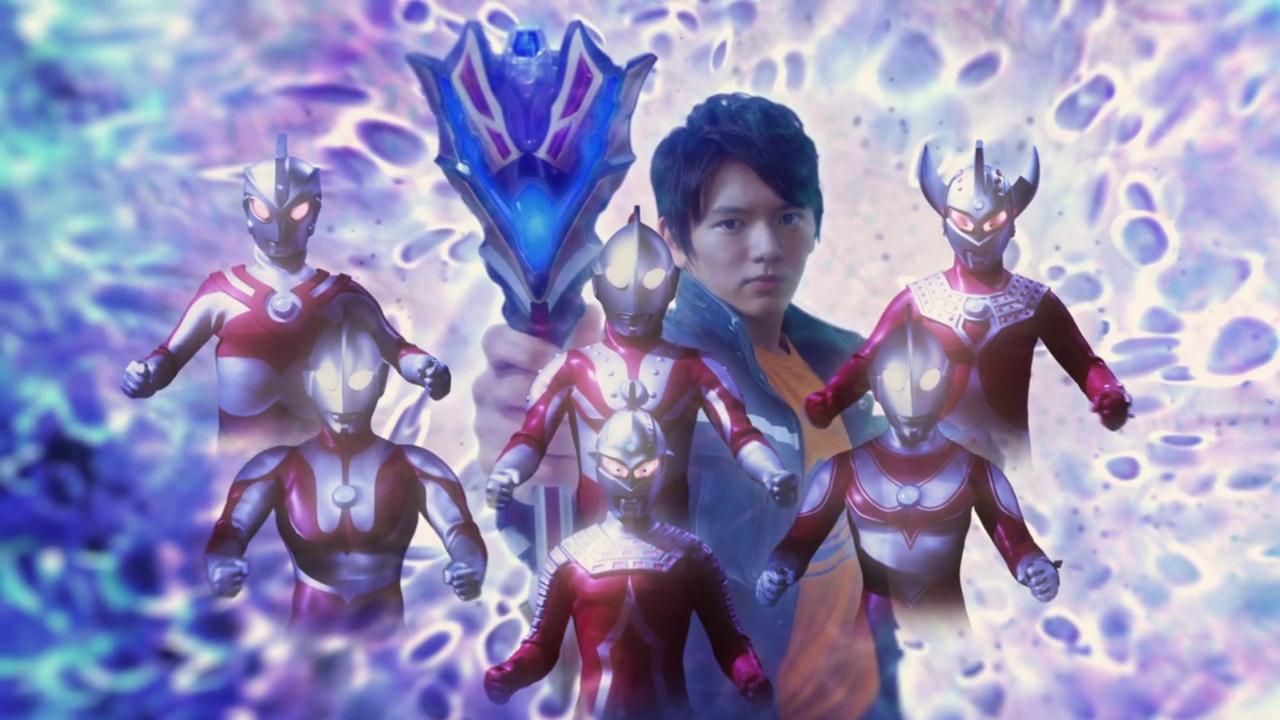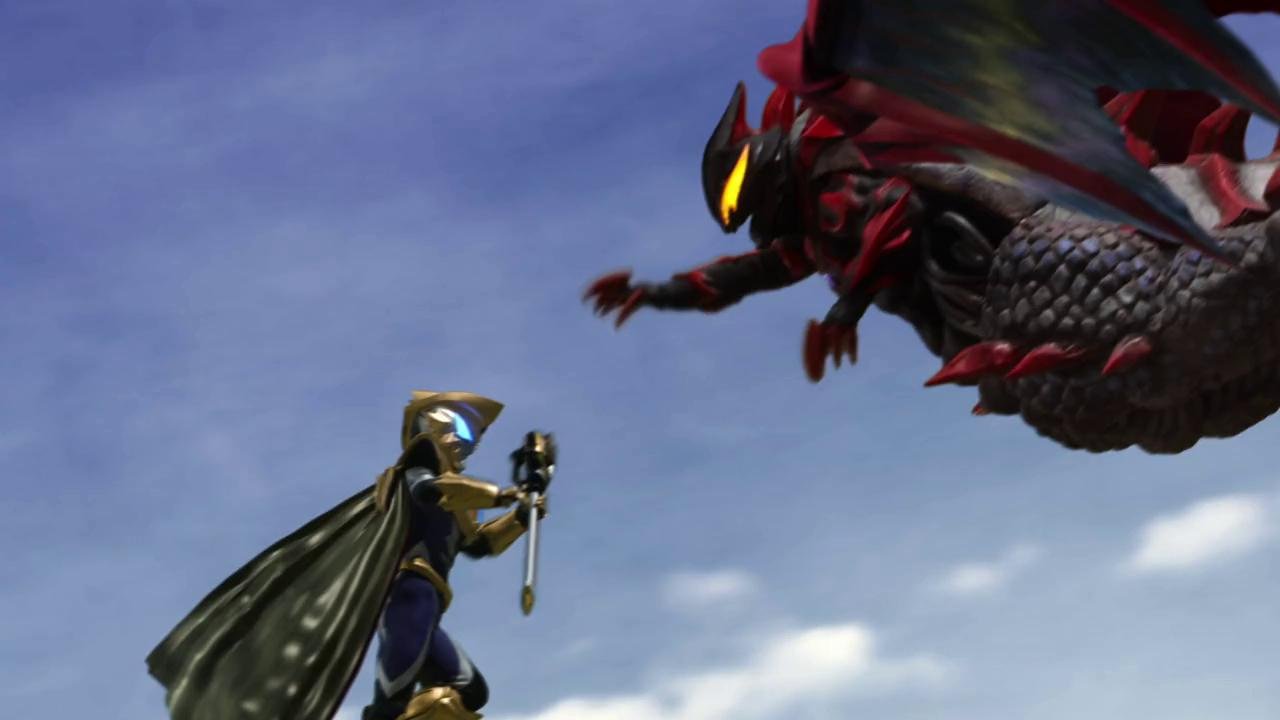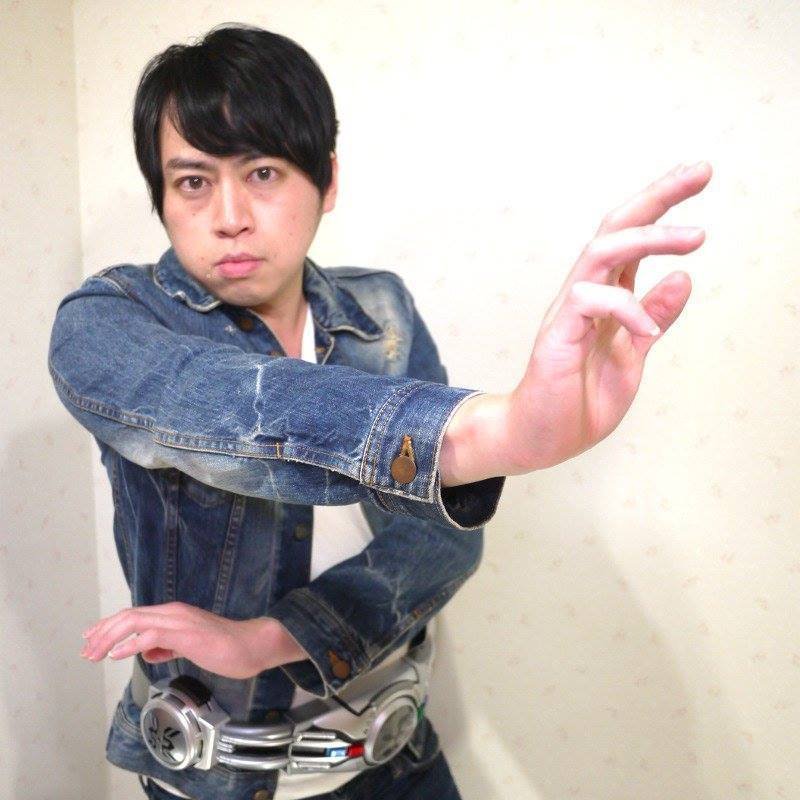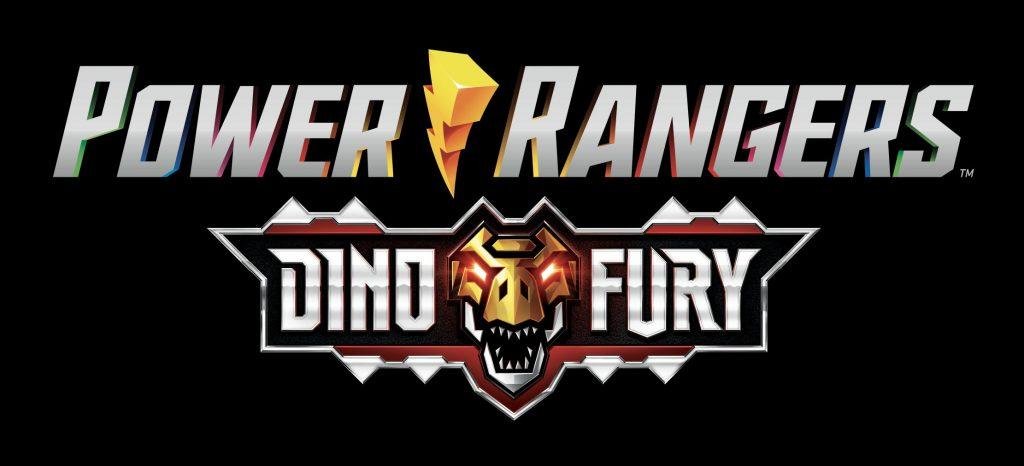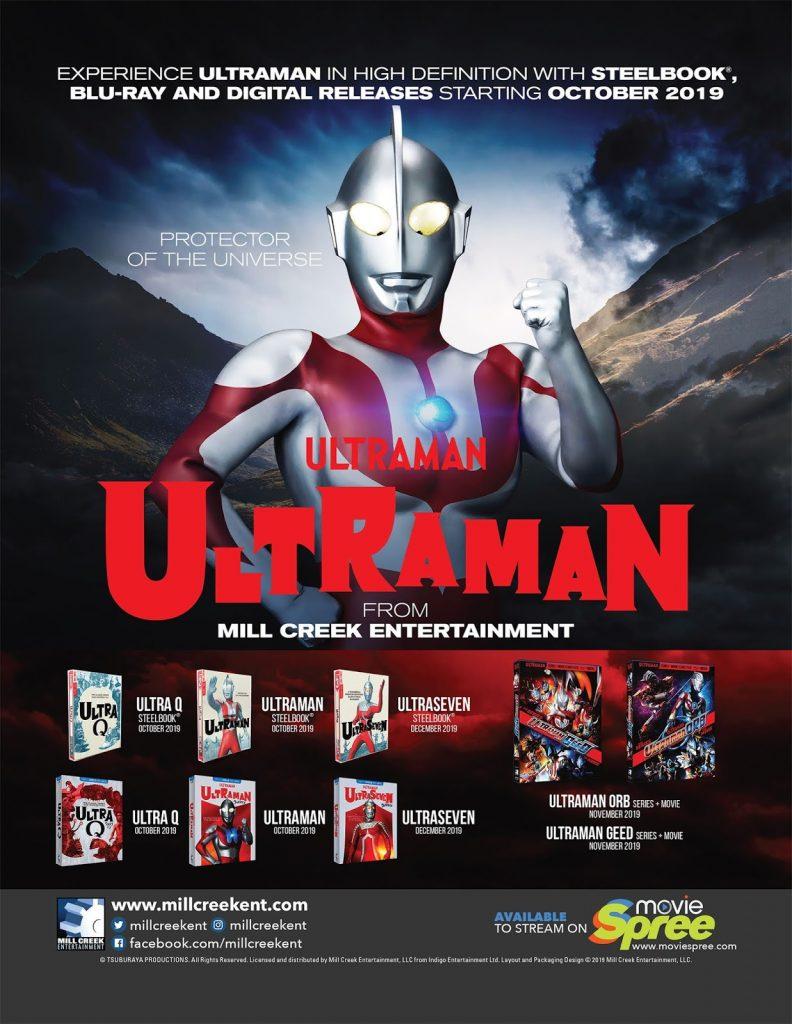Ultraman Geed has multi-parters growing out of every orifice these days, doesn’t it? With few exceptions, this series has kicked into high gear since we struck the halfway point, and I can’t tell you how happy I am to be in this sweet spot. This is where things get interesting. Where we’re done setting up the status quo and having random yarns about cute pet monsters or smelly saunas and are ready to pay off everything that’s been building up these past dozen or so episodes.
In our last review, young hero Asakura Riku grappled with the startling revelation that he was the son of the twisted Ultraman Belial, created as a means for the supervillain to acquire more power in his latest worlds-conquering scheme. We also found ourselves smack dab in the middle of one of those multi-parters I mentioned, in which alien AIB agent Zena encountered his vengeful old student Kuruto, who was sucked into a portal with Zena’s AIB partner Moa. Both events would play a pretty crucial role in the next three stellar episodes, as things get more complicated, much-needed backstory is finally explored, and we test just how much truth there is to the saying: All the best cowboys have daddy issues.
Moa awakens on the other side of the portal, through which I had kind of assumed was another dimension, or a different planet, or something weird, but it turns out they just teleported, like… five blocks away from where they left. Does that mean that, every time the monster blasted stuff in the attack and then the explosions were absorbed through portals, all the debris just fell someplace else on Earth? Is there an old folks home somewhere that just had a bunch of flaming office supplies showered over their heads? I want to know how this works.
The point of Moa and Kuruto being swept away together seems to be less about offering some cool sci-fi wackiness and more just providing a convenient excuse for them to sit down and talk after his treachery was revealed to our heroes. And even after he points a gun at her, threatening her directly (as if sending a kaiju to stomp the city into sticky paste wasn’t enough), Moa shows her compassionate side and stays with him when he passes out. It’s this compassion that apparently inspired a lone Zena back when they first met. The stoic, emotionally distant Shadow-Seijin tracking down a rogue extraterrestrial, only to find this girl caring for him in the street, despite not knowing a thing about it.
I suppose it’s a bit cliche that this is Moa’s backstory- the female member of the unit with the sensitive soul, who is “the heart of the team”- but it does effectively explain why she’s an AIB agent when she’s proved she’s not the most adept at the conventional world-saving stuff. It’s undoubtedly why she and Zena make such a damn good pair. He’s the badass, no-nonsense tough guy, and she compliments his coldness with tolerance, empathy, and understanding. A thing greatly needed as everyone searches for Moa while she’s in Kuruto’s dangerous company.
And though he’s formed a bond with this klutzy agent, laughing together over shared experiences as Zena’s pupils, each from a different side of his divided life as both a destroyer and a defender, Kuruto must ultimately follow the path that he was conditioned to take. Unlike Zena, who found that he had to change his ways of attacking and taking from others in the universe, Kuruto stayed true to his roots, raised as a “Child of Battle”. The Shadows are the Game of Thrones Ironborne of tokusatsu, apparently. What is dead may never die?
In this we see one fundamental difference between Japanese children’s stories and those of American media. Of course, there are plenty of exceptions, but I didn’t grow up in a time where you would often see the defeat of an enemy portrayed with a layer of sadness and regret about what might have been, had things worked out differently. If barriers had been broken down sooner, what quite literally was a child soldier might have been able to de-program his inclination toward making war and worked toward nobler goals. Sympathy for an enemy seems a worthy thing to teach, even in a subgenre as weird and crazy as this one.
Maybe I should have picked up on this sooner, but it only now occurs to me that AIB, the secret organization policing Earth in secret, is actually more alien than human. I remember noting how awesome it was to see Moa surrounded by aliens in a previous episode, but now that I think about it, Moa could be one of only a handful of human members in the agency. That’s a pretty stark difference from the usual Science Patrol teams in other Ultraman series, which typically feature almost exclusively human-looking membership, with only a few deviations. Which just makes Moa even more of a boss in my book.
Moa and Zena have little time to recover from the confusing loss of Kuruto after the fateful battle sees him swallowed up by an explosion wrapped up in forcefields from Ultraman Geed and Zero. The two agents quickly show up after a rash of strange illnesses has befallen people around the city, including young swordswoman Laiha. And we continue paying off elements from earlier in the series as Tri-Tip makes her return, now as a recruited AIB member, along with other aliens in human guise, all helping to secure people with Little Stars, the energy source sought after by Belial and his followers. Tri-Tip and her colleague God-Win (wow, these names) help Moa understand that the sickness she’s been experiencing is linked with the Little Star that lay dormant inside her since the loss of her parents during the villainous Kei’s monster attack.
The Little Stars, and everything about them, are really just nonsense excuses for the characters to go out and do stuff, so every time the show tries to explain something about them, I just kind of smile and nod. So, Fukuide Kei spread a bunch of radiation across the Earth, and then people breathed it in and it gathered inside them and got stronger, but Laiha’s Little Star became undetectable because she’s special, and also the legendary Ultraman King talks to her from his ethereal cosmic nothingspace, and… eh. Anyway, the point is, she’s had a boatload of power this whole time because Riku’s new upgrade needed a personal touch and they wanted to not have monsters following her the whole series, so there’s your reasons.
The less eye-glazing part of the episode comes when God-Win aka the monster Godola-Seijin reveals himself to be a traitor (because all the cool aliens are doing it these days) who wants to sell the Little Star hosts in their lab who came to them because they thought they were safe. Meanwhile, Zena is attacked in the CGI base by yet another Godola, and it takes Zena about five seconds to hand this chump his own ass on a silver platter.
Laiha gets to show off her martial arts prowess as she defends the endangered, young Little Stars against the other Godola, making use of the mop Moa passes her to beat the crap out of the alien infiltrator. Yay for useful chicks working together and not once mentioning the awkward love triangle! I like this version of Laiha and Moa. More of this, please!
So, Godola thinks growing to kaiju size will help, but apparently nobody told him that this was a secret two-parter that doesn’t care about him, so it comes as a surprise when Belial himself badassedly descends from the heavens and blows him up with one blast. Godola was just Riku’s warm-up before finally coming face-to-face with dear ole dad. Not only that, but Ultraman Zero leaps into the fray, to confront his old nemesis once again, after the gauntlet of previous battles they fought together.
Zero and Geed have a lot to bond over, when you consider the details of their stories. I’m not sure how much of it was intentional or accidental, but they’re both legacy characters. Children of famous fathers who have been responsible for giant interstellar turning points that decided the fate of billions. The difference between them being that Zero’s father Ultraseven was a hero, who fought against the likes of Belial and Zero was trained by Ultraman Leo, whereas Geed was born from Belial’s genes, spit out of Kei’s laboratory, and passed around between humans who didn’t know what to do with him. Geed isn’t just Zero’s junior in terms of age. He had no one to nurture his fighting spirit, likely making it that much more important for him to rely on others, unlike the cocky, self-assured Zero who may have gained many allies but only came to them after a series of trials. Regardless, the two Ultra Sons look dope transforming and posing together, fated to join forces against this undying cockroach of a villain.
The new form Belial soon takes has an appearance that reminds of the title villain of Godzilla vs. Destroyah. With its rigid, crimson flesh, spiked joints, and enormous wings, it proves a formidable adversary for the two Ultras, eventually absorbing Geed and flying off to the moon for some family therapy time.
In a shared mindscape, their fight continues, Riku finding himself unable to beat Belial, who keeps insisting he remember his blood and forsake the cowardly humans. The look on Riku’s face as Belial holds him close under those huge freaking hands suggests it might actually be working on him. Weirdest hug ever. Despite the fact that Belial’s a murderous bastard, some part of Riku must yearn for this connection. I just wish that, at some point, he had remembered the human father-figure he reconnected with in the episode that got him his most recent form change.
Elsewhere, Laiha hears from Zero about the epicenter of the universe-shattering Crisis Impact, where Ultraman King’s spirit can be felt most strongly, after saving their reality from Belial’s attack before the series started. All of this would have played better for me if we had heard about it (or at least seen it subtly implied) earlier, but this is apparently where Laiha has to go to help Riku. Upon her arrival, the god-like, regal Ultra confirms that she was the first bearer of a Little Star, which is why she hears his cryptic messages at convenient times. He transports her to Riku’s mindscape, encouraging him to remember his human life, the things that inspire him, the people that love him (aside from the aforementioned father-figure, I guess), and the world he swore to protect. He snaps out of it just in time to stop Belial from trouncing Zero on the moon.
From here, one of the cooler uses of an Ultraman finisher beam is on display, as Geed is locked in Belial’s clawed grip, until he fires a blast into the ground, powerful enough to launch the both of them off the moon and back toward the Earth from wince they came. In a shot that looks a lot like Neo and Smith dropping out of the sky in The Matrix Revolutions, the opposing Ultras crash into the city, where a group of citizens decide to stay and watch the fight instead of flee in terror like sensible human beings. From here, it becomes a live stage show, as the people of the city, whose preposterous speculations about whether or not Geed is a hero are finally put to rest (as if they needed even more demonstrations) when they witness him fighting against Belial to save them. Cheers ring out and Geed is spurred on toward victory.
In classic tokusatsu extravaganza mode, Geed cycles through all of his form changes in his battle with Belial, one after the other, until finally arriving at his newest form. Gifted to him by Laiha’s relinquished Little Star, Riku becomes Ultraman Geed Royal Mega-Master. I still find handheld weapons in Ultraman to be a bit of a mixed bag that often leans toward the “please no” but as Ultra arsenals go, Royal’s bladed scepter isn’t a bad addition to it. The cape and the sparkly effects definitely recall majestic images of MagiShine (Solaris Knight) from Mahou Sentai Magiranger (Power Rangers Mystic Force), as well as Ultraman King, of course.
It’s a nice touch to use the six classic Ultra Brothers (with Ultraseven front and center) for a single Ultra Capsule, creating a shield to block Belial’s attack. If they’re not all getting individual form change powers, it’s nice that they get acknowledgment from the episode that calls back to their era of the franchise with King finally appearing. In a sweet aerial exchange, Riku rejects Belial’s claims that he can’t rewrite the hand fate has dealt him. Despite the evil he was spawned from, Geed is determined to make his own destiny. And so, with a final, gigantic beam, he destroys Belial. At least until next week, or the week after that, when he inevitably comes back.
For now, Team Geed can celebrate after a long series of intense battles where the bonds between family, both by blood and otherwise, were tested for nearly everyone. Oh, and Kei is a hobo now, I guess. Poor little underling still gets no respect, after all he’s done for his master. We can assume this is just a temporary deal for him, a strange glow beginning to emanate from his body as he stumbles off into the distance.
So ends the last of three great back-to-back episodes of Ultraman Geed. I do wish that a lot of stuff that was picked up in these installments had gotten more groundwork laid in previous episodes, to make all these fantasy developments really sing, but I can’t say I wasn’t entertained. Looking back on the series so far, I just keep thinking that if the series had started differently, Geed would be close to the last three series, Ultraman Ginga S, Ultraman X, and Ultraman Orb, in terms of likability for me. Instead, I’ll simply end with this common phrase, that sums up my view of the show to this point.
Better late than never.

